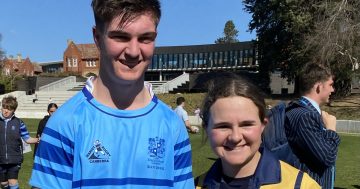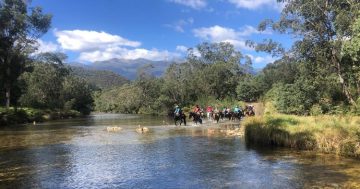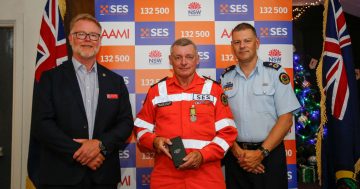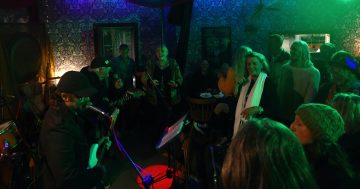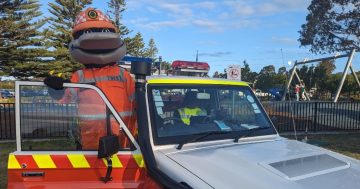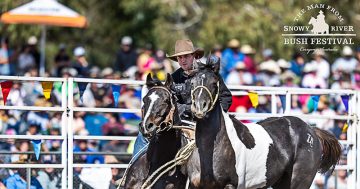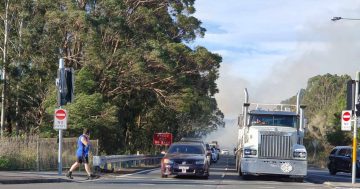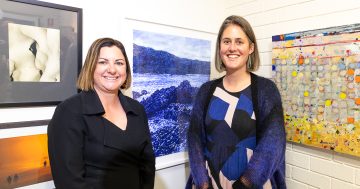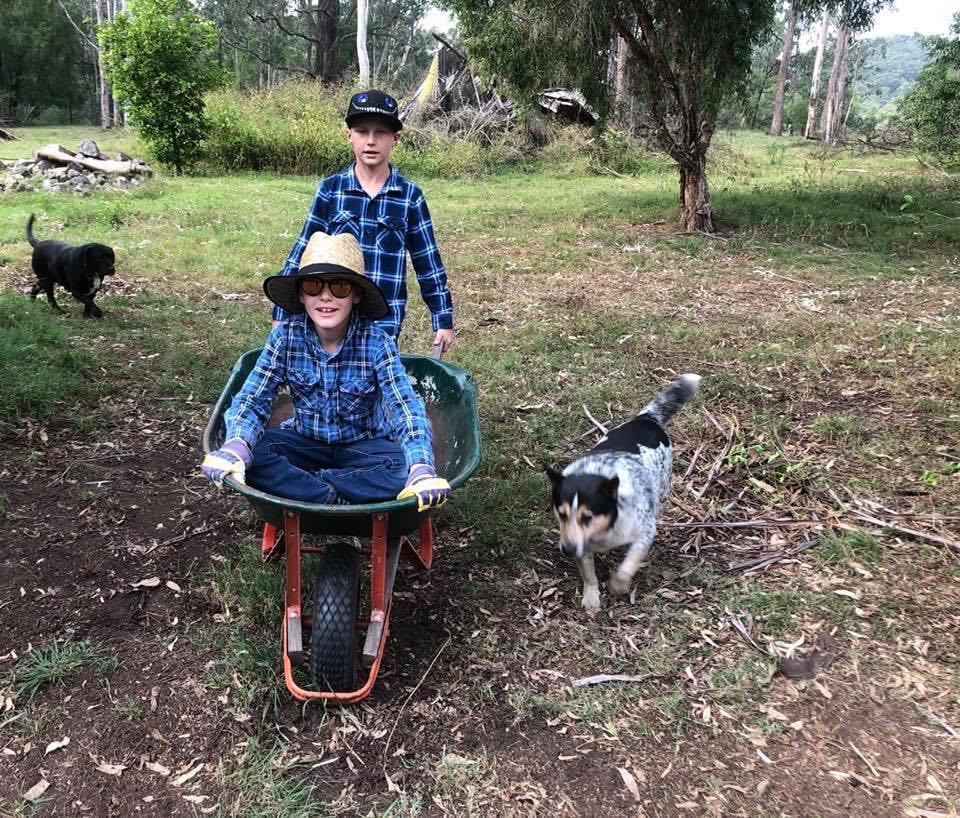
Jess Dwyer’s sons, Oscar and Brad, enjoying country life. Photo: Jess Dwyer.
Unreliable roads, isolation and patchy reception might not sound like paradise, but Moruya woman Jess Dwyer knows better.
She grew up on the Deua River, west of Moruya, and has battled to return home with her sons since the Black Summer bushfires.
She remembers the hour-long bus ride to school, with potholes so big the kids would compete to see who could get the most air off them.
Holidays were spent running wild – and on the June long weekend something special happened.
“We used to have the Deua River bush races, a big community event,” she remembered.
“Every Sunday for two months leading up to it we had working bees.
“The parents would fix fences and dig pit toilets. We were too busy running amok in the bush as kids to know what else they were doing!
“We saw volunteering as part of life and it was always a fun day.”
When Jess finished school she moved to Moruya, then fell pregnant with her first son Oscar in 2008.
Fifteen months later her second son Brad arrived.
The young mum and her family moved to the Central Coast for work and education but deep down she wanted them to experience the community she had growing up.
They moved home and lived between the river and rentals in town.
“Mum and I were so similar, we’d clash,” Jess laughed.
“A lot of it came down to how long we could live together.
“My aunt said it’s sad when your kids leave – but it’s tragic when they come home!”
Jess’ mum, artist and teacher Lisette Wenholt-Dwyer, died suddenly of an aneurysm in 2016.
Jess was 28.
“Mum was so full of life; it was such a shock,” Jess said.
“At first I was consumed by the grief. It was like I didn’t have anything left in me.
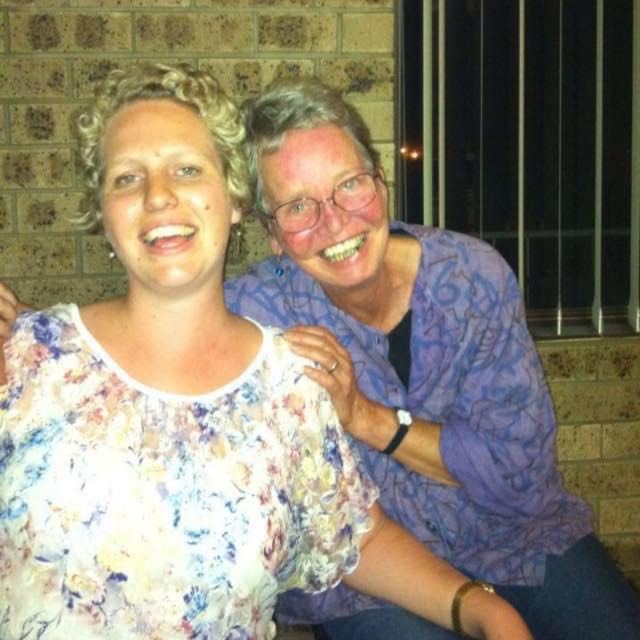
Jess Dwyer with her mum Lisette. Photo: Jess Dwyer.
“Mum lost both her parents young and would always say ‘life goes on’.
“I never understood what she meant until she was gone.
“As much as you don’t want it to, things keep happening and you have to go with it.”
Jess and her sons moved home to help her dad manage the property a year later.
Despite the ache of loss, it was an idyllic time.
The boys enjoyed the space and freedom and took the same long, bumpy journey to school their mum had.
“The bus driver who had driven me to school was still driving the bus when Oscar started kindy,” Jess said.
“He was so proud of his ‘river kids’ – he could always tell you what everyone was up to.”
But it wasn’t to last.
Familiar with fires, in 2019 Jess was worried. The bush was parched.
The river, which never stopped flowing before October, was dry in July.
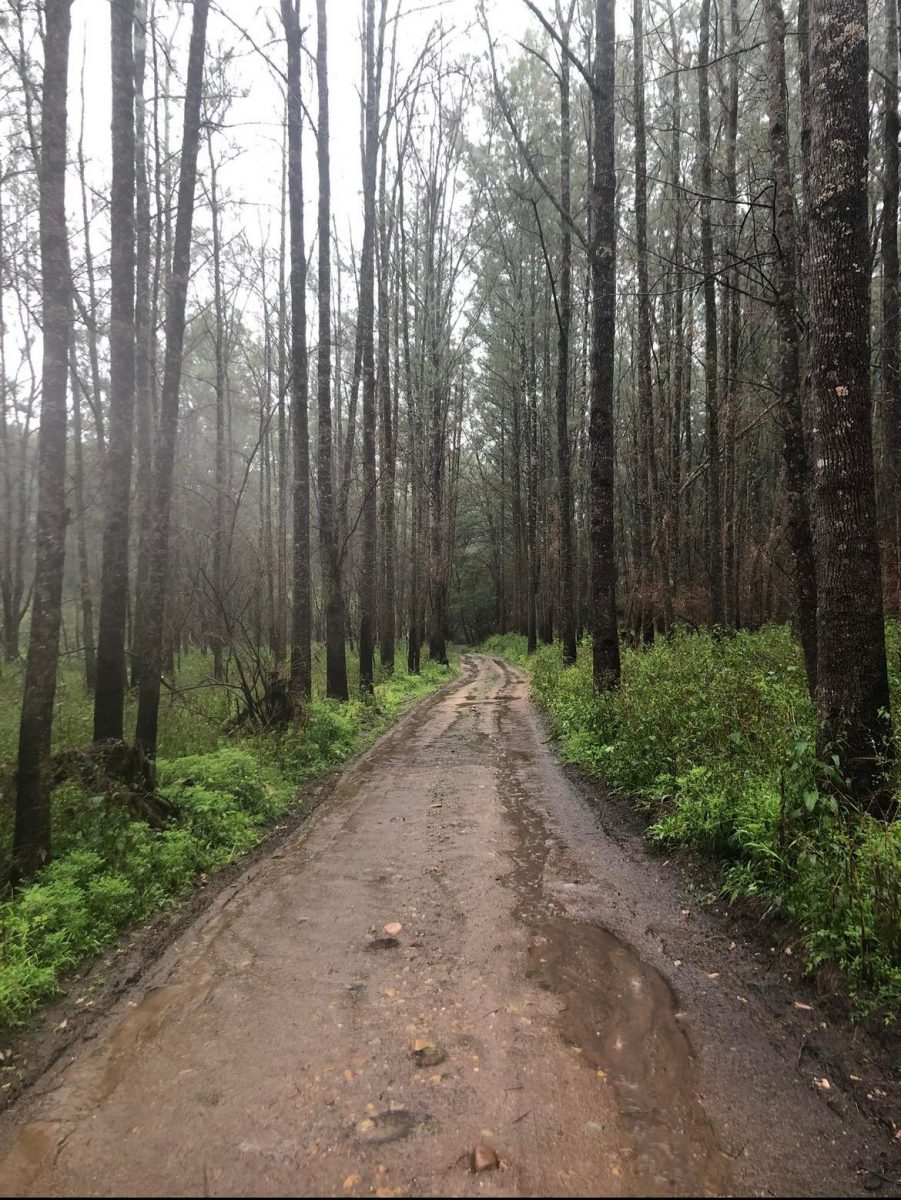
The road to Jess Dwyer’s property. Photo: Jess Dwyer.
On Boxing Day a fire started on a neighbour’s property.
Blazes raged up and down the coast, firies were stretched to breaking point and their road was dicey at the best of times.
Without water in the river, there was no way to defend their home.
She packed up their most precious possessions, her boys and their pets and got out.
It would be a month of anxious waiting before their homes burned. Jess kept busy volunteering at fire control.
She remembers a chaotic time, with fleeting moments of normalcy.
“We were living out of the car, at friends’ homes, at the evacuation centre,” she said.
“I was there while Cobargo, Malua Bay and Mogo burned.
“The calls I took … they stay with you.
“Then, one quiet week in January I took the boys to the carnival and mini golf – normal summer holiday things.”
Although their home was insured, Jess and her family are yet to rebuild.
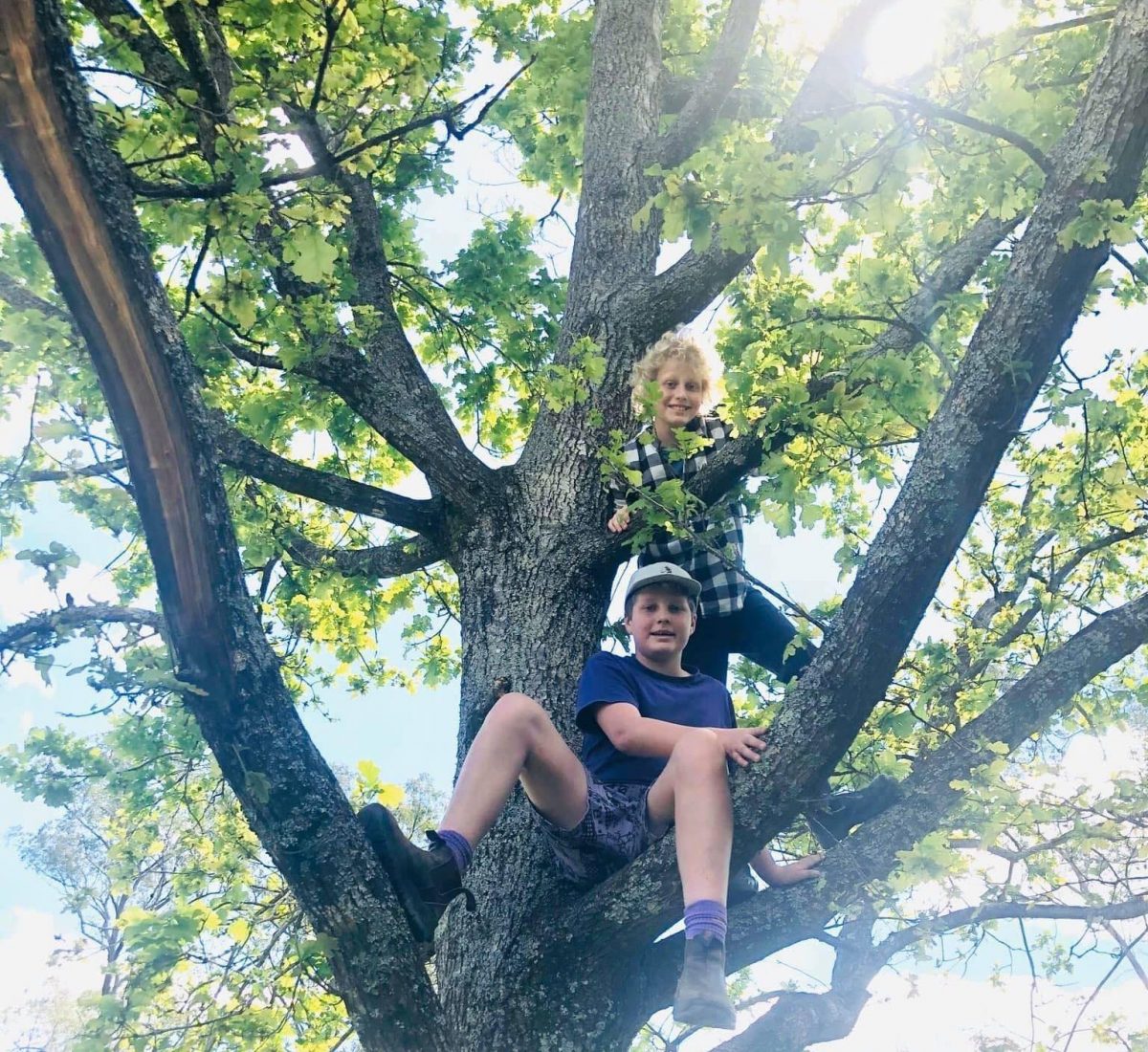
Brad and Oscar up a tree. Photo: Jess Dwyer.
The cleanup went well before a landslip in late 2020 closed the road.
They were able to get a slab down by an alternate road before another landslide closed it, too.
Jess is hopeful they’ll have a shed up on the slab before the end of the year and despite the challenges, there’s nowhere she’d rather be.
“There’s something about this town – it’s just got heart.”







